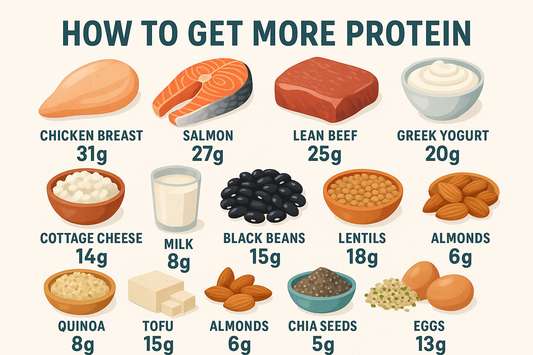Understanding Running 5km Calories: What to Expect and Calculate
Introduction to Running and Calories
Running is an effective way to burn calories burned and achieve weight loss goals, with the average sized person burning around 300-400 calories per 5km run.
Understanding calorie burn is crucial for weight management, as it helps individuals create a calorie deficit and lose weight.
The number of calories burned while running depends on various factors, including body weight, running speed, and distance.
A calorie calculator can be used to estimate the number of calories burned during a run, taking into account individual factors such as body mass and basal metabolic rate, which is the minimum number of calories the body needs for basic functions at rest. Using individual data helps provide a more accurate number for calories burned.
Running is a great way to burn more calories improve overall health and fitness, and can be adapted to suit different fitness levels and goals.
Factors Affecting Caloric Expenditure
- The number of calories a person burns during a run depends on various factors, including body weight, running speed, terrain, and environmental conditions.
- Body weight is a significant factor in caloric expenditure, with heavier individuals burning more calories during exercise.
- Running speed also affects calorie burn, with faster runners burning more calories per hour.
- The terrain and incline of the run can also impact calorie burn, with uphill running burning significantly more calories than running on level ground. Running on an incline increases the energy cost of the run, requiring more oxygen and effort.
- Wind resistance and other environmental factors can also influence calorie burn, making outdoor running a more effective way to burn calories than treadmill running. Running in certain conditions may require more or less energy, affecting how much energy a person burns during a run.
- Individual factors such as metabolic rate and body composition can also affect calorie burn, making it essential to use a calorie calculator to get an accurate estimate. These calculators often use the MET value (metabolic equivalent) to estimate calories burned for different activities. MET values can be adjusted for age and running speed to provide more accurate estimates.
Running Efficiency and Calories
- Running efficiency is critical in determining calorie burn, with more efficient runners tending to burn fewer calories per mile at a given pace.
- Proper running form and technique can help improve running efficiency, reducing the risk of injury and improving overall performance.
- Strength training can also help improve running efficiency, by increasing muscle mass and power. Building more muscle mass can lead to higher calorie burn both during and after running.
- Understanding calorie burn and running efficiency can help individuals optimize their training and achieve their weight loss goals.
- A well-structured training plan can help individuals improve their running efficiency and burn more calories. Running faster or incorporating speed work, such as intervals or hill sprints, can further increase calorie burn.
Calculating Calorie Burn
Understanding how many calories your body burns while running is such a wonderful foundation for anyone on their journey toward losing weight or maintaining a healthy, balanced weight that truly serves them. The number of precious calories your unique body burns during each run depends on several beautiful factors - your individual body weight, the pace that feels right for you, and the distance your body gracefully covers. Using a thoughtful calorie calculator can be such a nurturing tool to help you gently estimate the calories burned based on these personal factors, making it so much easier to lovingly plan your workouts and celebrate your progress along the way. For example, a dear person weighing 140 pounds who chooses to run at a comfortable, moderate pace of 10 minutes per mile can expect their body to burn around 318 calories during a nurturing 30-minute session. Knowing your personal calorie burn helps you create a gentle calorie deficit with such care and intention, which leads to gradual weight loss. which is truly essential for sustainable weight loss that honors your body. A thoughtful daily calorie deficit of about 500 calories can lead to a gradual, healthy weight loss of one pound per week, making your weight loss journey both wonderfully effective and deeply sustainable for your long-term wellbeing.
Maximizing Calories Burned
- To maximize calories burned, individuals can incorporate high-intensity interval training (HIIT) into their workout routine. Incorporating intervals where you run faster can help burn more calories by increasing exercise intensity and improving running efficiency.
- Running uphill or on varied terrain can also help increase calorie burn, as the effort required to run uphill engages more muscle groups and requires more energy, increasing overall energy expenditure.
- Incorporating strength training into a workout routine can also help increase muscle mass, which can help burn more calories at rest.
- Proper nutrition and hydration are also essential for maximizing calorie burn, as they help fuel the body and support energy production. Running in challenging conditions or at higher intensities requires more energy, so adequate fueling is important.
- Running the same distance at a higher intensity can result in greater calorie burn, even if the distance remains constant.
- Getting enough rest and recovery is also crucial, as it helps the body repair and adapt to the demands of exercise. Running at moderate intensity is effective for sustained calorie burning and building aerobic fitness.
Running and Weight Management
- Running is an effective way to achieve weight loss and weight management goals, primarily by creating a caloric deficit and increasing energy expenditure.
- A calorie deficit of 500-1000 calories per day is recommended for weight loss, which can be achieved through a combination of diet and exercise.
- Running can help individuals achieve a healthy weight, by burning calories and increasing metabolism. Running can also support weight gain goals when combined with a caloric surplus and appropriate nutrition planning.
- Understanding calorie burn and weight management is essential for achieving and maintaining a healthy weight. Regular running plays a key role in weight maintenance by helping to balance calorie intake and expenditure over time.
- Regular running can contribute significantly to long-term weight management and overall fitness. Weight loss running is a structured approach that uses running specifically for weight loss, focusing on calorie expenditure, gradual progress, and sustainable habits.
- A well-structured training plan and nutrition strategy can help individuals achieve their weight loss goals, but it is important to find the right balance between exercise, nutrition, and rest for optimal results.
Health Benefits of Running
While many dear souls begin their running journey with weight loss as their primary focus, I've witnessed through my years in healthcare how the nurturing benefits of this natural movement practice extend so much deeper than simply burning calories. When you embrace regular running as part of your holistic wellness routine, you're giving your cardiovascular system a beautiful gift that strengthens your heart and enhances your body's natural endurance in the most organic way. This gentle yet powerful practice works harmoniously with your body to naturally lower your risk of chronic conditions like heart disease and diabetes, supporting your overall vitality from within. Beyond the physical nourishment, running becomes a deeply healing practice for your emotional and mental well-being. The natural release of those wonderful endorphins during your run creates a gentle, therapeutic experience that can lovingly ease stress, calm anxiety, and provide relief from feelings of depression in the most natural way possible. When you mindfully incorporate running into your daily rhythm, you're not simply pursuing lose weight goals—you're truly investing in a holistic approach to your long-term health and inner happiness, nurturing both body and spirit in perfect harmony.

Types of Runs and Calories
- Different types of runs, along with run distance, can have varying effects on calorie burn, with longer runs burning more calories than shorter runs.
- Hill sprints and interval training can also help increase calorie burn, by engaging more muscle groups and increasing energy expenditure.
- Running on a treadmill can be a great way to burn calories, especially during the winter months or in areas with limited outdoor running routes.
- Outdoor running can also be beneficial, as it allows individuals to run on varied terrain and incorporate strength training into their workout routine.
- Understanding the different types of runs and their effects on calorie burn can help individuals optimize their training and achieve their fitness goals.
Nutrition and Recovery
Nurturing your body with wholesome nutrition and dedicated recovery practices is truly the cornerstone for runners who are passionate about enhancing their natural calorie-burning potential, supporting their body's running harmony, and empowering themselves toward their wellness goals. Embracing a balanced, holistic approach to eating that lovingly includes nourishing carbohydrates, healing protein, and beneficial healthy fats ensures your body feels genuinely supported and energized for each beautiful run you embark upon. After your running journey, gently refueling with a caring combination of carbs and protein becomes a nurturing ritual that helps your muscles recover naturally and prepares your whole being for your next empowering workout. Staying mindfully hydrated flows as an equally vital practice for your overall wellness and running vitality. Prioritizing this holistic approach to nutrition and recovery not only supports your natural weight loss journey but also helps reduce injury risks in the most gentle way while keeping you feeling truly vibrant and empowered as you work toward your personal fitness aspirations.
Tracking Progress and Setting Goals
Gently tracking your wellness journey is a beautiful way to nurture your motivation and ensure you're walking a path that truly honors your unique weight loss goals. Thoughtful tools like calorie calculators and fitness trackers can become your caring companions, helping you mindfully observe your body's energy flow, movement intensity, and daily vitality patterns. Setting realistic and heartfelt intentions—such as lovingly committing to a certain distance each week or gradually increasing your movement practice—can keep you centered and inspired on this personal journey. By tenderly reviewing your progress with compassion, you can celebrate each precious milestone, adjust your approach with wisdom and patience, and stay deeply connected to your individual path toward holistic wellness and balance.

Running at High Elevations
Running at high elevations can have varying effects on calorie burn, and most runners experience increased energy expenditure as the body adapts to the lower oxygen levels.
The effects of high elevation on calorie burn can vary depending on individual factors such as fitness level and acclimatization.
Running at high elevations can also help improve cardiovascular health, by increasing red blood cell production and improving oxygen utilization.
Understanding the energy cost of effects of high elevation on calorie burn can help individuals optimize their training and achieve their fitness goals.
Acclimatization to high elevation can take several days to several weeks, and can be influenced by factors such as fitness level and altitude.
Running with a Backpack
- Running with a backpack can increase calorie burn, by engaging more muscle groups and increasing energy expenditure.
- The weight and size of the backpack can also affect the number of calories a person burns, with heavier backpacks resulting in more calories burned.
- Running with a backpack can also help improve strength and endurance, by engaging the core and leg muscles.
- Understanding the effects of running with a backpack on calorie burn can help individuals optimize their training and achieve their fitness goals.
- Proper fitting and adjustment of the backpack can help reduce discomfort and improve running efficiency.

Older Adults and Running
Running can be beneficial for older adults, by improving cardiovascular health, reducing stress, and increasing energy levels.
Older adults may need to adapt their running routine to accommodate age-related changes, such as reduced muscle mass and bone density.
Understanding calorie burn and weight management is essential for older adults, as it can help them achieve and maintain a healthy weight. When calculating calorie expenditure, it's important to note that met values may need to be adjusted for older adults to account for changes in metabolic efficiency.
A well-structured training plan and nutrition strategy can help older adults achieve their fitness goals and improve overall health.
Incorporating strength training and flexibility exercises into a workout routine can also help improve running efficiency and reduce injury risk.
Common Mistakes to Avoid
Common mistakes to avoid when running include overtraining, inadequate nutrition, and poor running form.
Overtraining can lead to injury and burnout, while inadequate nutrition can impair performance and increase the risk of illness.
Poor running form can also increase the risk of injury, and reduce running efficiency.
Understanding calorie burn and weight management can help individuals avoid common mistakes and achieve their fitness goals.
A well-structured training plan, nutrition strategy, and setting realistic goals can help individuals optimize their training, avoid common mistakes, and achieve their fitness goals.
Staying Motivated and Engaged
Nurturing long-term motivation is deeply essential for sustainable success in your running journey and natural weight management. I believe in the power of many runners connecting with a running companion or embracing a supportive community group, as this provides the encouragement and gentle accountability that truly nourishes your commitment. Incorporating variety into your routine with interval training, hill sprints, or strength work reflects a holistic approach that keeps your body engaged while naturally enhancing your calorie-burning potential. I'm passionate about celebrating those precious small milestones along your path, as this nurtures your confidence and keeps your spirit truly engaged in the process. Having a deep understanding of the key factors that influence your body's natural calorie burn—such as your individual metabolic rate, running efficiency, and even environmental elements like wind resistance—empowers you to customize your workouts for optimal, personalized results. By staying motivated and genuinely engaged with your body's needs, you'll be much more likely to achieve your natural weight management goals while embracing the abundant benefits that this beautiful practice of running has to offer your overall wellness.













